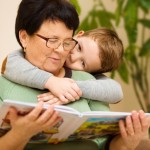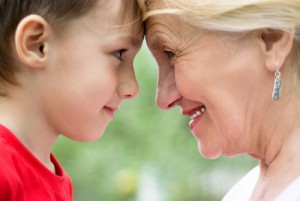
If you are a carer over the age of 50 it seems that every second person you meet is caring or has recently cared for a parent. It was therefore not surprising to me that this article starts off with the statistics showing that the dramatic increase in older people in the North American and European populations is leading to a similar increase in the number of adult children carers.
Whilst the term ‘carer’ is one that is more familiar to us, as this is an international review the term ‘ care-giver’ is used and for the sake of consistency I will use it in this blog.
This article is a scoping review of the research on the well-being of adult children caregivers (ACCs). The authors point out that most research and reviews focus on spousal caregivers and there is far less research and no comprehensive reviews focussed on adult children who are caring for aging parents.
The article highlights factors which differentiate this group of caregivers from spousal caregivers. It is a unique role in that role reversal often takes place as the adult ‘child’ takes on the roles and responsibilities of ‘parenting’ their parents, thus disrupting their previous relationship with their parents.
ACCs are also often at a stage in their own lives when they still have numerous roles and responsibilities such as being a parent, spouse and employee.
For the purpose of this review caregivers were defined as a family member who assisted an individual whose ability was limited – either physically or mentally due to aging or chronic illness.

The study reviewed research on the well-being of adult children caregivers.
Methods
The review focussed on looking at the following research question:
Across studies, what are the range and types of issues that contribute to the well-being of adult children caregivers (ACCs)?
Well-being was defined as the way in which caregivers report on certain positive and negative factors which included happiness, life satisfaction, morale, distress, psychological states, feelings of gain, physical health, depression, burden and quality of life.
The researchers searched a number of databases between January 1996 and August 2012 using key terms and combinations of terms such as ‘caregiver’; adult children’; well being. Studies were included in the review based on the following 3 criteria:
- the sample described included at least 50% ACCs;
- the study used quantitative or qualitative methods;
- the outcomes reflected the well-being or health of the ACCs.
Studies were excluded if that focused on aging parents living in institutional care setting; if care giving was palliative; the research described or evaluated an intervention or research measurement tool.
The initial search yielded 1320 studies and after duplicates, non-English studies and non-peer review studies were eliminated 688 studies remained. Following the application of the inclusion and exclusion criteria 55 studies were described in the final review.
The review used a narrative analysis and synthesised the data to identify common themes.

The authors looked for studies that examined the issues contributing the adult children care-giver well-being.
Findings
The review found that the factors which related to the well-being of ACCs fell into 3 categories:
Factors which were care-recipient related (the care-recipients’ health or impairment or the type of care given). The studies that looked at these factors found:
- Where the care-recipients had cognitive impairments or behavioural problems rather than physical impairments this led to greater depression and a higher burden for the caregivers.
- Where care provided increased over time this led to lower satisfaction. Providing more care was associated with burden, stress and health strain.
Factors which were care-giver related (Gender, age, education, marital status ethnocultural background, income and psychological dispositions). The studies that looked at these factors found:
- Daughters when compared to sons were found to have more persistent depression symptoms over time, as well as reporting higher personal and emotional costs relating to caregiving.
- Daughters also reported greater life satisfaction compared to sons.
- Lower income care givers reported more burden, more depressive symptoms, less self-esteem and poorer physical health.
- Higher optimism in caregivers was associated with lower depression and higher life satisfaction. This factor also helped to moderate the stress experienced by caregivers.
- Higher self-esteem was associated with lower depression.
- Caregivers who reported feeling guilty about failing to live up to personal standards or social conventions relating to care-giving reported more burden.
- Care givers who found meaning in giving care reported less depression and higher self esteem.
- Where care-givers perceived that they had control over their different roles in life they experienced less depression and greater life satisfaction.
Factors which were socially embedded (Parent-child relationship; emotional and practical support available and the multiple roles of the care-giver). The studies looking at these factors reported:
- Caregivers who had high-quality relationships with their parents reported low distress, strain, burden and depression as well as high self-esteem and satisfaction.
- Where care-givers had support they reported better health and well-being. Emotional support from spouses was a significant factor.
- Having multiple roles was found not to be associated with increased strain, depression or burden.
It is important to bear in mind that not all the studies reviewed investigated all of the factors. Therefore each of the results reported above come from a small number of the 55 studies reviewed.
For the purpose of this blog I have only summarised those findings where there were consistent findings, for example there were not consistent findings across the studies reviewed relating the ethno-cultural factors and care-givers.

Various factors relating to the caregiver and to the care recipient as well as socially embedded factors were identified.
Conclusion
The authors conclude that:
Socially embedded factors that contribute to ACC well-being have received the most attention in the literature. Among these factors, ACC well-being is uniquely impacted by the quality of the parent–child relationship and combination of roles occupied.
Strengths and limitations
This is the first scoping review to pull together the findings from the limited number of studies which relate to the ‘well-being’ of adult children care-givers.
It is an international review and therefore does not only focus on research which has been carried out in this country where there is a specific pattern of services which support people to remain in their own homes for as long as possible.
Summing up
The Care Act, implemented in April 2015 gives carers greater recognition and rights. Thus it is vital to take note of the evidence showing the factors which will lead to better health outcomes and greater life satisfaction for adult children who give care to their parents.
As the population of older people increases and there are less financial resources available our system of keeping people in their own homes and communities will increasingly rely on the care that is given by adult children to their parents. The support and care given to adult children carers is vital to maintain the systems of support which exist in this country and this study provides important indications of social factors affecting well-being.

This study provides indications of social factors affecting carer well-being important for the implementation of the Care Act.
Link
Bastawrous, M., Gignac, M.A., Kapral, M.K. and Cameron, J.I. (2015) Factors that contribute to adult children caregivers’ well-being: a scoping review Health and Social Care in the Community 23 (5) pp.449–466 [Full Text]

What contributes to adult children carers’ well-being? http://t.co/Ok43gfB1Sx
Don’t miss: What contributes to adult children carers’ well-being? http://t.co/DgeFK4qi7O #EBP
Research on the well-being of adult children #carers via @SocialCareElf http://t.co/aS1VOgc7ng
What keeps adult children who are carers healthy – read review of research
http://t.co/fwpjLuQAP7
What contributes to adult children carers’ well-being? @JeanneCarlin finds out http://t.co/Dl4rsJDEWO
Does the parent-child relationship make a difference to adult children carers’ well-being? @JeanneCarlin discusses http://t.co/Fzqgtw5im1
Find out evidence on factors contributing to adult children carers’ well-being: http://t.co/4pHwFq73EZ @CarersTrust @CarersUK